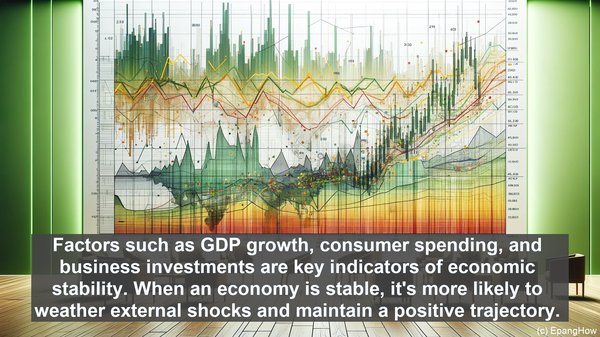Introduction: The Crucial Distinction
Hello everyone! Welcome to our article on the intriguing topic of economic stability and financial stability. While these terms might seem similar, they actually represent distinct aspects of an economy. Today, we’ll explore the nuances, highlighting how they differ and how they converge in the broader economic landscape.

Defining Economic Stability
Economic stability refers to a state where an economy maintains a steady growth rate, low inflation, and low unemployment. It’s a measure of the overall health and resilience of an economy. Factors such as GDP growth, consumer spending, and business investments are key indicators of economic stability. When an economy is stable, it’s more likely to weather external shocks and maintain a positive trajectory.

Unpacking Financial Stability
On the other hand, financial stability focuses on the stability of the financial system within an economy. It’s concerned with the smooth functioning of financial institutions, such as banks, and the ability of these institutions to absorb and manage risks. Financial stability is crucial for maintaining public confidence in the financial system, ensuring the availability of credit, and preventing financial crises.
Interplay and Interdependence
While economic stability and financial stability are distinct, they are deeply interconnected. A stable financial system is essential for economic stability, as disruptions in the financial sector can have far-reaching consequences on the broader economy. At the same time, a robust and growing economy contributes to financial stability, as it generates income, increases asset values, and reduces the likelihood of defaults.
Policy Implications
Understanding the differences between economic stability and financial stability is crucial for policymakers. It guides them in formulating appropriate policies to address specific challenges. For instance, during a period of economic instability, measures might be taken to stimulate growth, while in times of financial instability, regulatory interventions might be necessary to safeguard the financial system.
